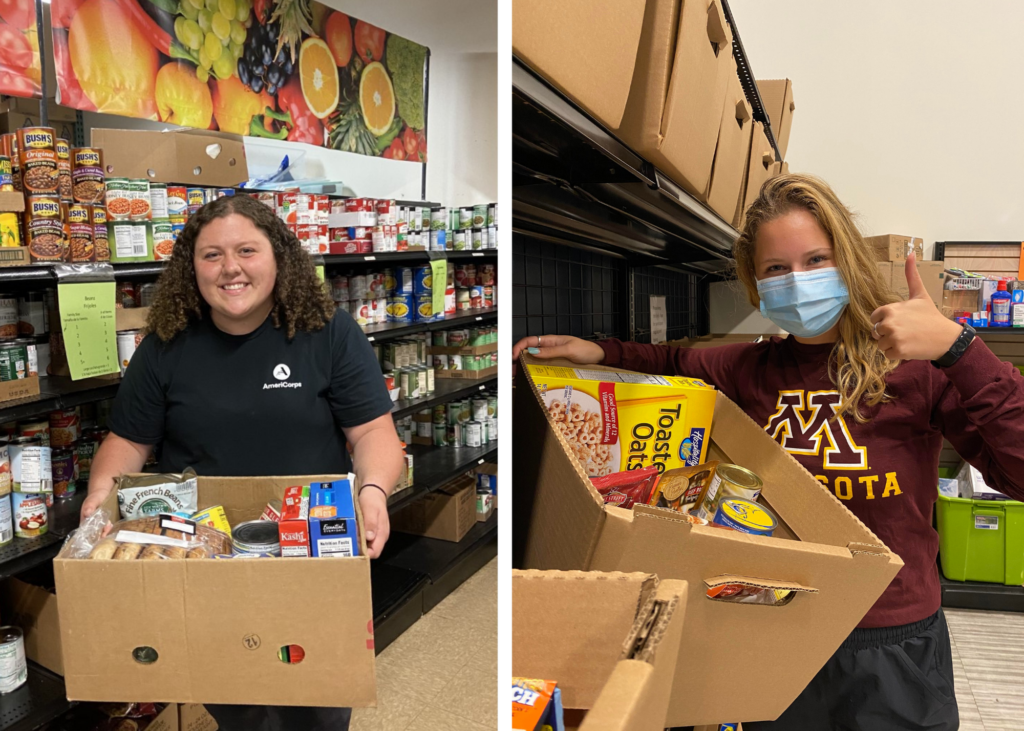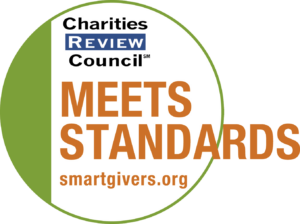Most days last summer, Emergency Response Initiative AmeriCorps member Mikayla Reinhardt was on the move, making food deliveries from her service site at the Scott Carver Dakota Community Action Partnership (CAP) Agency. She found that pandemic-related housing insecurity and economic instability made it even harder to make those deliveries.
“In the course of six hours during one day, from the time a family had called to the time we were supposed to deliver their food, they had moved across town to a different hotel,” remembers Mikayla.
Mikayla was one of many Emergency Response Initiative AmeriCorps members serving at local food shelves in Minnesota this summer and last summer, where they witnessed up close the compounding effects of the pandemic.
Logistics on logistics
Macey Chelstrom, who served at PRISM in Golden Valley, remembers last summer as a kind of organized chaos. “If you were looking from the outside and didn’t know our system, you’d think it’s a bunch of people just throwing food into a cart and then delivering it,” she said. “It was fast-paced, but we were keeping track of things and there was a lot of organization and planning that went into it.”
Macey’s team experienced a doubling in demand last summer, increasing families served per week from 200 to nearly 400. “We’d have 40 boxes packed and ready to go at any given moment,” Macey said. “ and there were multiple days during the week where you’d have the shelves filled. You’d turn around for two seconds and then turn back and it’d be empty.”
Zella Fluegel-Murray was also juggling a lot with a team at the Camden Promise in North Minneapolis, where most grocery stores were closed and buses weren’t running during the summer protests of 2020. Her crew not only set out food, toiletries, and other necessities every day in front of a closed Cub Foods, but also served a hot meal. On top of that, they were managing health precautions: “We tried to be really mindful of who was touching what,” said Zella.
Building leadership skills
Because of the sheer amount of organization that needed to happen, some AmeriCorps members stepped in to help train other volunteers and members, and gained valuable leadership skills because of it.
“I would receive a list of tasks and then would have to help organize volunteers and answer any questions they had,” said Zella. “I found different things for people to do. I was also learning how to manage multiple tasks at once.”
“I definitely think I got a confidence boost,” said Macey, who was also helping to organize volunteers at PRISM, another local food shelf. “I think I learned a lot from learning the basics, and then teaching someone else how to do it.”
“You’re alleviating stress in a super stressful time”
Macey, Zella, and Mikayla all noticed how much their work at local food shelves mattered, especially during a heightened time of need.
“I could see how much the pandemic was affecting people emotionally and physically over time,” said Zella, who was distributing food to a line of people every day, near the community where she grew up in North Minneapolis. “There were people in line that I knew, families that I knew from school.”
Macey noticed something similar one day when her team had to stop distributing food to cars because of a rainstorm. A man drove up and “was distraught,” she remembers. “He said he drove a long way and needed the food for his kids.” Macey and her team gave him what he needed, and it was a reminder that “you’re alleviating stress in a super stressful time for everyone.”
Mikayla says that delivering food to people created a special bond. “I definitely felt that the exchange of food opened the door for people to tell their stories,” she said. “I always made extra time to stop and listen, because there was so much trust that came from the exchange of food. It was something that I have never experienced in my life.”





